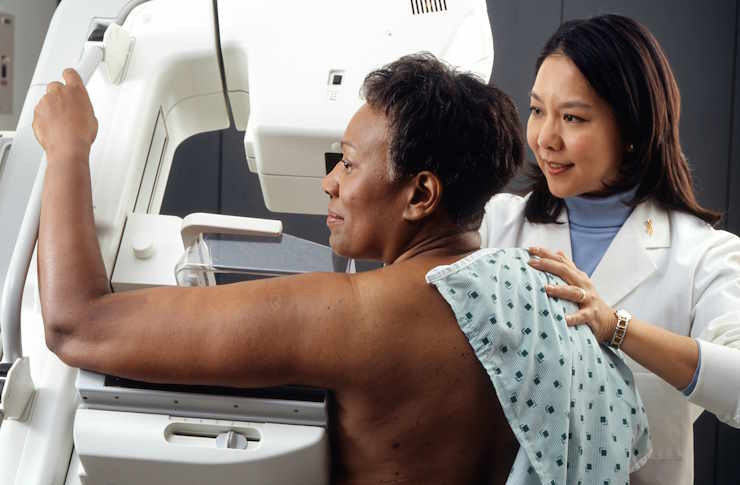Colon Cancer Doesn’t Wait — Neither Should You
It grows quietly, often with no warning signs — until it’s too late. But when caught early, it’s one of the most treatable forms of cancer. A simple test could save your life. Here’s what every adult over 30 needs to know — and how you can protect yourself today.

The Silent Killer: Why Is Colon Cancer So Dangerous?
Colon cancer earns its reputation as a silent killer due to its insidious nature. In its early stages, this disease often presents no symptoms, allowing it to grow and spread undetected. By the time symptoms do appear, such as changes in bowel habits, blood in the stool, or unexplained weight loss, the cancer may have already advanced to a more difficult-to-treat stage.
The danger lies in its ability to metastasize, spreading to other parts of the body through the bloodstream or lymphatic system. Once it reaches distant organs like the liver or lungs, treatment becomes more challenging, and survival rates decrease significantly. This is why early detection through regular screenings is crucial in the fight against colon cancer.
Shocking Statistics: The Reality of Colon Cancer
The statistics surrounding colon cancer are both sobering and urgent:
-
Colon cancer is the third most common cancer diagnosed in both men and women in the United States.
-
It’s the second leading cause of cancer-related deaths when men and women are combined.
-
The lifetime risk of developing colorectal cancer is about 1 in 23 for men and 1 in 25 for women.
-
While traditionally considered a disease of older adults, rates of colon cancer in people under 50 have been rising steadily since the mid-1990s.
These numbers underscore the importance of awareness and proactive health measures. They also highlight why medical professionals are now recommending earlier screenings for certain populations.
A Personal Story: The Impact of Early Detection
Consider the story of Sarah, a 45-year-old mother of two. With no family history of colon cancer and feeling perfectly healthy, she was hesitant when her doctor suggested a routine colonoscopy. However, she decided to go through with it.
To her shock, the screening revealed a large polyp that, upon removal and biopsy, was found to be cancerous. Because it was caught early, before any symptoms had appeared, Sarah was able to undergo treatment immediately. Today, five years later, she remains cancer-free and is a vocal advocate for early screening.
Sarah’s story is not unique. Countless lives have been saved or extended due to the early detection of colon cancer through routine screenings.
The Solution: What You Can Do Right Now
Taking action against colon cancer doesn’t require medical expertise. Here are steps you can take today to protect yourself:
-
Schedule a screening: If you’re 45 or older, or younger with risk factors, talk to your doctor about getting screened.
-
Know your family history: Understand your genetic risk factors and share this information with your healthcare provider.
-
Adopt a healthy lifestyle: Maintain a balanced diet rich in fruits, vegetables, and whole grains. Limit red meat and processed foods.
-
Exercise regularly: Aim for at least 150 minutes of moderate exercise or 75 minutes of vigorous exercise per week.
-
Quit smoking and limit alcohol consumption: Both are known risk factors for colon cancer.
-
Stay informed: Keep up with the latest recommendations and research on colon cancer prevention and treatment.
Why Acting Early Saves Lives
The importance of early action in combating colon cancer cannot be overstated. When detected at a localized stage, the five-year survival rate for colon cancer is about 90%. However, this rate drops to 14% when the cancer has spread to distant parts of the body.
Early detection through screening can prevent cancer altogether by identifying and removing precancerous polyps before they develop into cancer. It also allows for less invasive treatment options, potentially avoiding the need for aggressive chemotherapy or extensive surgery.
Moreover, early-stage colon cancer often has no symptoms, making screening the only reliable way to catch it before it advances. By acting early, you’re not just increasing your chances of survival; you’re potentially avoiding a long, difficult battle with advanced cancer.
Colon cancer is a serious threat, but it’s one that we have the tools to combat effectively. By understanding the risks, recognizing the importance of early detection, and taking proactive steps, you can significantly reduce your risk of becoming another statistic. Remember, when it comes to colon cancer, waiting is not an option. Take charge of your health today – it could save your life tomorrow.
This article is for informational purposes only and should not be considered medical advice. Please consult a qualified healthcare professional for personalized guidance and treatment.




